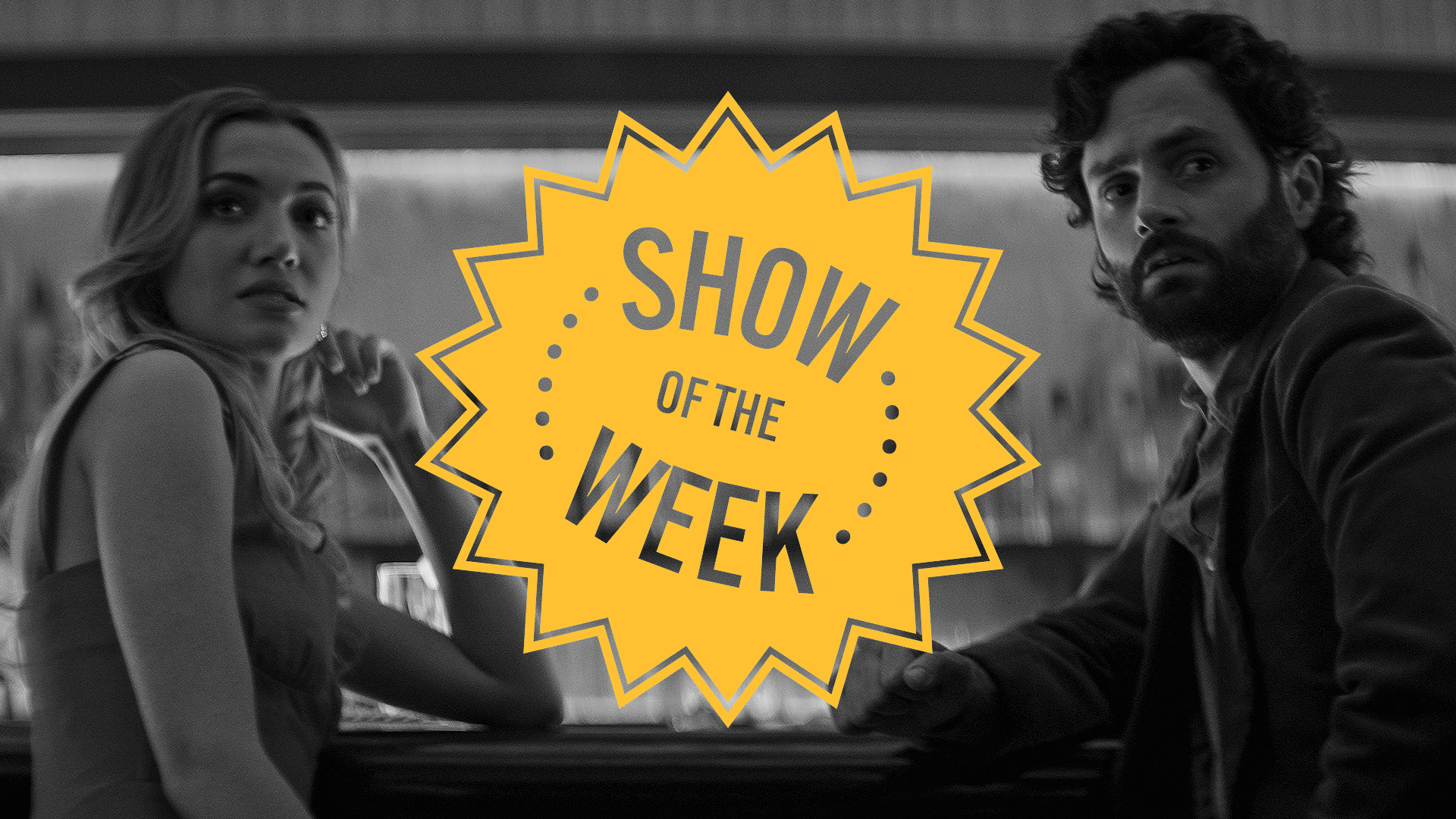The second half of You’s new season signals its intentions have shifted

We’re all drowning in content—so it’s time to highlight the best. In her column, published every Friday, critic Clarisse Loughrey recommends a new show to watch. This week: the newly-released season four second half of Netflix’s obsessive thriller You.
I ended my piece on the first part of Netflix’s fourth season, which dropped on Netflix last month, with a question: “Could Joe Goldberg really become a better man?” The premise made me think, in my naivete, that we were army crawling toward a definitive answer. After all, Joe (Penn Badgley) had made his way to Europe, with a fake name, a steady job in academia, and a semi-functional crush on upper-crust art dealer Kate (Charlotte Richie).
Sure, he was being blackmailed by a vicious serial killer who turned out to be his only ally amongst the elite, Rhys Montrose (Ed Speleers). But the point was that Joe, finally, was the hero of his own story, no matter how precariously that title rested on his shoulders. And then came Part Two. Allow me to be overwhelmingly vague for 400 words purely out of fear that I’ll accidentally spoil something—this wasn’t what I had expected. At all. The next four episodes are clumsy and outlandish, a towering stack of complications that an infant could topple over with a single breath. But it’s also as if the show’s writers had anticipated that I’d be so overwhelmingly concerned with the fate of Joe’s soul. In response, they’ve forced him into a hellish personal reckoning that’s seen him come face-to-face with mirror images of his own sociopathy.
Joe, as someone wisely points out, has always existed in a deep state of denial. His intellectualism twists every sin into a deal with the devil made by a poetic hero who has no choice in his fate. What the audience knows, of course, is that he’s nothing more than an obsessive, murderous, abusive creep. It may seem a little on the nose, at first, to find a key part of the puzzle hidden in a copy of Robert Louis Stevenson’s Strange Case of Dr Jekyll and Mr Hyde—but You has always had one foot firmly planted in fantasy, so a sojourn into Gothic symbolism actually melds quite well.
As the rest of the season plays out, it becomes increasingly clear that showrunner Sera Gamble’s intentions with Joe have shifted. You has become less about the dangerous charms of abusers and manipulators, and more about the very nature of man’s evil. Is that a lot for a show I’ve previously called “like Riverdale for people with houseplants and a copy of Jia Tolentino’s Trick Mirror” to take on? Quite probably, and Part Two is by no means as successful in its endeavours as it believes it is.
But there’s also something compelling, addictively so, about the ways You plays with old tropes like a lion with its next snack—in ways that repeatedly challenge the audience’s presumptions about just what kind of man Joe is. “You wage war with your own nature,” he’s told, by someone who knows him better than he knows himself. Is there any spark of goodness locked deep inside that black heart of his? And why do Joe’s quests for redemption always seem to come at the expense of his victims?
There I go again, asking the questions that, somewhat frustratedly, You circles round and round and round. The season’s final beat is a little unsatisfactory, in a way I could only reveal to those who’ve already seen the show, tied to the lack of grand plan so many of these ambitious drama series are ultimately let down by. But perhaps that’s another argument for another day.



















